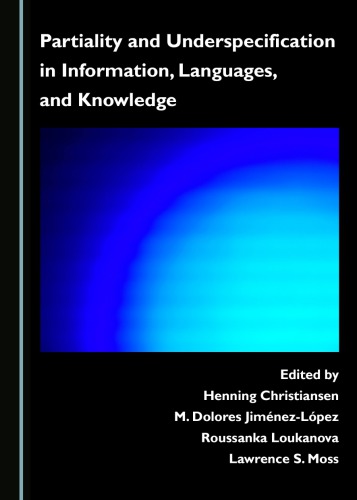

Most ebook files are in PDF format, so you can easily read them using various software such as Foxit Reader or directly on the Google Chrome browser.
Some ebook files are released by publishers in other formats such as .awz, .mobi, .epub, .fb2, etc. You may need to install specific software to read these formats on mobile/PC, such as Calibre.
Please read the tutorial at this link: https://ebookbell.com/faq
We offer FREE conversion to the popular formats you request; however, this may take some time. Therefore, right after payment, please email us, and we will try to provide the service as quickly as possible.
For some exceptional file formats or broken links (if any), please refrain from opening any disputes. Instead, email us first, and we will try to assist within a maximum of 6 hours.
EbookBell Team

5.0
68 reviewsThe book covers theoretical work, advanced applications, approaches, and techniques for computational models of information, reasoning systems, and presentation in language. The book promotes work on intelligent natural language processing and related models of information, thought, reasoning, and other cognitive processes. The topics covered by the chapters prompt further research and developments of advanced systems in the areas of logic, computability, computational linguistics, cognitive science, neuroscience of language, robotics, and artificial intelligence, among others.